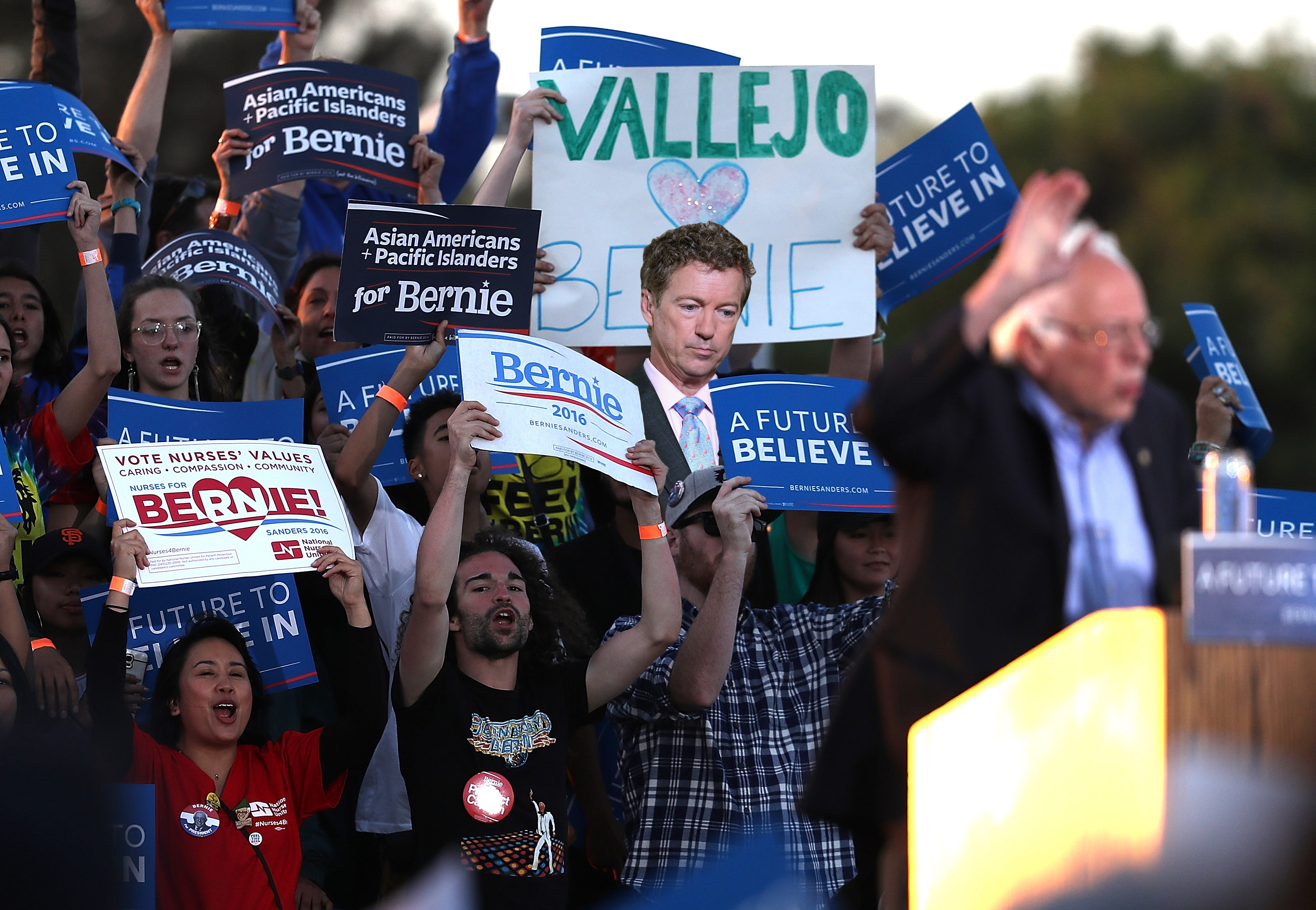What happened to the great youth revolt against government?
Wasn't the Uberization of America supposed to drive millennials toward libertarianism?


A free daily email with the biggest news stories of the day – and the best features from TheWeek.com
You are now subscribed
Your newsletter sign-up was successful
Wasn't the Uberization of America supposed to drive millennials toward libertarianism? It hasn't happened. Instead, socialism is on the march in this country.
A Gallup poll recently found more Americans between the ages of 18 and 29 had a favorable view of socialism (51 percent) than capitalism (45 percent). That represents a 12-point drop in positive views about capitalism among this age group in the last two years and a 23-point decline since 2010.
Meanwhile, self-proclaimed democratic socialist Alexandria Ocasio-Cortez won an upset victory over an establishment Democratic leader in her New York congressional race and subsequently became her party's millennial superstar. Before her, Bernie Sanders mounted a surprisingly competitive Democratic primary challenge against Hillary Clinton, with strong millennial support. It was Sanders' first race as a Democrat. He'd previously run as the nominee of various small left-wing third parties and had spent the past quarter-century in Congress as an independent socialist.
The Week
Escape your echo chamber. Get the facts behind the news, plus analysis from multiple perspectives.

Sign up for The Week's Free Newsletters
From our morning news briefing to a weekly Good News Newsletter, get the best of The Week delivered directly to your inbox.
From our morning news briefing to a weekly Good News Newsletter, get the best of The Week delivered directly to your inbox.
All of this presents a tremendous problem for proponents of limited government (like me).
Younger voters have long been the great libertarian hope, a fact that has only intensified as aging boomers have embraced President Trump as he has driven the Republican Party — the most electorally viable vehicle for limited government in the country, however flawed — in a more statist direction: no more entitlement reform, lots of tariffs, the return of corporate welfare, a doubling down on the death penalty for certain drug crimes, and a more crimped view of free speech.
It wasn't so long ago, during the so-called "libertarian moment," that Republican Ron Paul was the presidential candidate attracting big, young crowds and performing relatively well with primary voters in their 20s and 30s while their elders sought contenders who were for defense contracts, farm subsidies, and keeping "the government's hands" off their Medicare.
Reason editors Matt Welch and Nick Gillespie didn't emphasize the youth angle quite as much in their 2011 book arguing that the future belongs to libertarians. But they did argue that the bloated bureaucratic state was no match for the "folks who created everything from the Pill, to venti macchiatos, to Wikipedia."
A free daily email with the biggest news stories of the day – and the best features from TheWeek.com
The Uberization of America was supposed to woo millennials to the free-market libertarian perspective. It hasn't worked out that way.
The demographic that thinks markets are cool when it comes to trying craft beers doesn't seem eager to try them more extensively in health care or perhaps even education. I called an Uber while covering a Sanders rally in Iowa. My driver had been an attendee, excitedly extolling Bernie's virtues as I was being charged double surge pricing.
Maybe the kids don't know any better (itself possibly a consequences of our failure to teach them). But just as it is hard to sell Republican-leaning retirees and near-retirees on Social Security privatization, younger folks drowning in student loan debt and staying on their parents' health insurance plans courtesy of ObamaCare might be more receptive to government solutions than promises to claw these benefits back.
And while the last two Republican presidents haven't been consistent government shrinkers, to say the least, they have succeeded in repelling younger voters from the party that at least pays lip service to fiscal conservatism (even if it often governs by piling on the debt). That too could drive them into the arms of Elizabeth Warren or another Ocasio Cortez-type candidate.
None of this is necessarily permanent, of course. We are talking about people born after the fall of the Soviet Union and the waning of communism, who have never lived under federal marginal income tax rates higher than 40 percent, who have witnessed stock market collapses but not obvious shortages and rationing caused by government. Since they were born, Republican tax rates have happily coexisted with Democratic spending programs and the expansion of the latter has always been justified as only requiring the former to rise for the top 1 percent.
If forced to choose, and feel the burdens of those choices, who's to say what they would pick? Until then, however, the great youth revolt against government growth looks like it is going to have to wait.
W. James Antle III is the politics editor of the Washington Examiner, the former editor of The American Conservative, and author of Devouring Freedom: Can Big Government Ever Be Stopped?.
